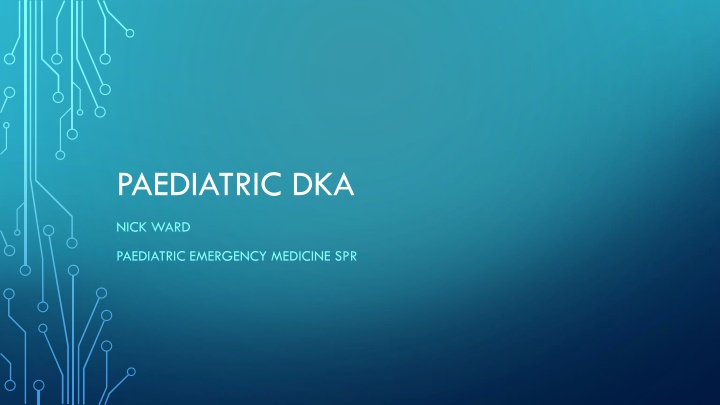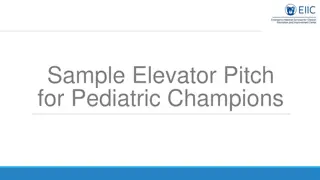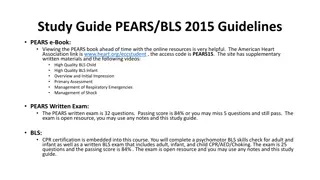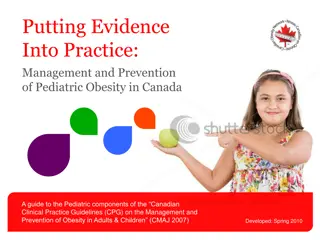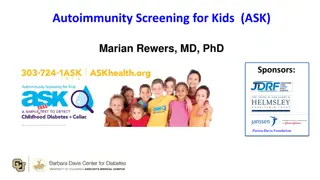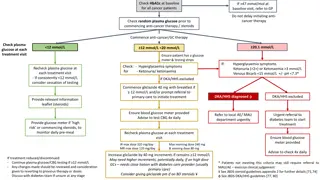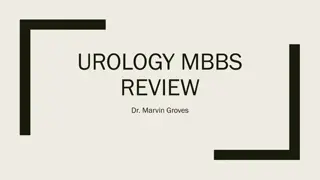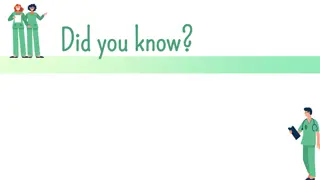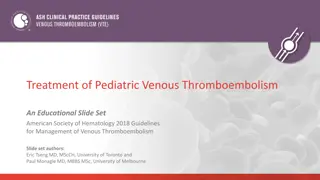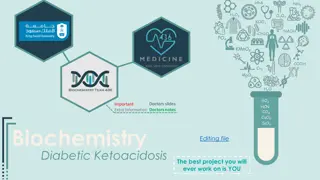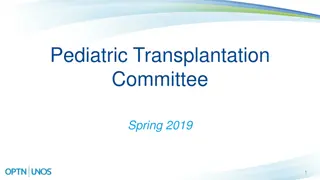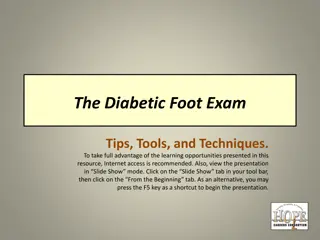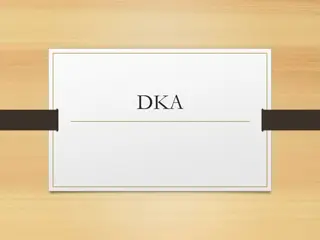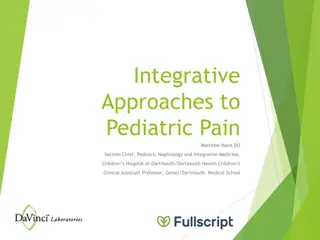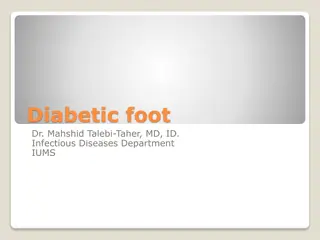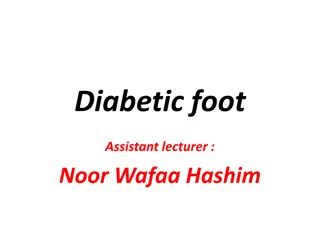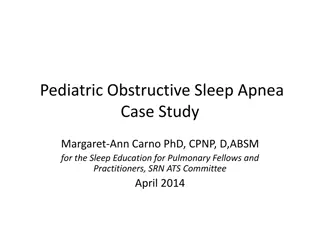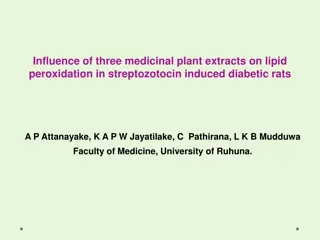Pediatric Diabetic Ketoacidosis: Diagnosis, Management, and Case Studies
Management of pediatric diabetic ketoacidosis (DKA) is crucial to prevent complications such as cerebral edema and hypoglycemia. This content covers the incidence of DKA in children, traditional aims of DKA management, guidance from BSPED, and case studies for practical application. Learn to diagnose DKA, start appropriate management, and stay updated with recent research. The cases discussed highlight key indicators for diagnosing DKA and provide insights into managing patients with known diabetes.
Download Presentation

Please find below an Image/Link to download the presentation.
The content on the website is provided AS IS for your information and personal use only. It may not be sold, licensed, or shared on other websites without obtaining consent from the author.If you encounter any issues during the download, it is possible that the publisher has removed the file from their server.
You are allowed to download the files provided on this website for personal or commercial use, subject to the condition that they are used lawfully. All files are the property of their respective owners.
The content on the website is provided AS IS for your information and personal use only. It may not be sold, licensed, or shared on other websites without obtaining consent from the author.
E N D
Presentation Transcript
PAEDIATRIC DKA NICK WARD PAEDIATRIC EMERGENCY MEDICINE SPR
LEARNING OUTCOMES Be able to diagnose DKA Start appropriate management Discuss recent research / updates Prescribing session
INTRODUCTION incidence of DM 25 per 100 000 children 0-15 years 19.8% had DKA at diagnosis ~3000 children in East of England with Type 1 DM RCPCH National Paediatric Diabetes Audit 2017-18
TRADITIONAL AIMS OF MANAGEMENT Avoid overhydration cerebral oedema Cerebral oedema is largest cause of death in DKA ALSO: Avoid hypoglycaemia Hyper/hypo kalaemia Aspiration
GUIDANCE BSPED https://www.bsped.org.uk/media/1629/bsped-dka-aug15_.pdf CATS: childrens acute transport service http://site.cats.nhs.uk/wp-content/uploads/2018/01/cats_dka_2018.pdf
DKA OR NOT DKA DIAGNOSIS
CASE 1: 4 year old boy. 3 weeks of increased drinking and passing urine Presents to ED with vomiting, abdo pain and SOB BM 27 pH 7.12 Ketone 4 DKA or Not DKA?
CASE 1: DKA! pH <7.3 Ketones > 3mmol/l BM >11
CASE 2: 15 year old boy. Known diabetic Presents to ED with abdo pain BM 10 pH 7.12 Ketone 4 DKA or Not DKA?
CASE 2 DKA Patients with known DM can have relatively normal glucose levels and develop DKA Euglycaemic DKA- consider gas in unwell type 1 DM
CASE 3: 4 year old boy. 3 weeks of increased drinking and passing urine Presents to ED with vomiting, abdo pain and SOB BM 32 pH 7.31 Ketone 4 DKA or Not DKA? More info?
CASE 3 Gas pH 7.31 pCO2 2.0 HCO3 13
CASE 3 DKA! pH <7.3 or bicarbonate <18 Respiratory compensation Could rapidly develop acidosis if falls asleep
CASE 4 12 year old boy. 3 weeks of being unwell Presents to ED with vomiting, abdo pain and SOB BM 40 pH 7.4, bicarbonate 25 Ketone 2 DKA or Not DKA?
CASE 4 NOT DKA Hyperosmolar Hyperglycaemic State Usually type 2 diabetes Marked hyperglycaemia Ketones <3 No acidosis Give fluid bolus and assume 15% dehydration
DIAGNOSIS- BSPED pH <7.3 OR Bicarbonate <18 High Ketones >3 High BM (usually)
INITIAL MANAGEMENT BSPED Evidence of early insulin leading to cerebral oedema Evidence of too much fluid --> cerebral oedema ABCDE IF SHOCKED REQUIRES FLUID BOLUS: 10ML/KG Otherwise start IV fluids
SHOCK Do not rely solely on cap refill to diagnose shock in DKA Bolus 10ml/kg 0.9% Saline DW senior prior to further boluses
DKA SEVERITY: DEHYDRATION Mild/Moderate 5% deficit pH >7.1 dry mucous membranes reduced skin turgor Severe 10% deficit pH <7.1 As above + sunken eyes
INITIAL FLUID 0.9% saline with 20mmol K+ in 500ml
INITIAL INSULIN Only to start 1 hour post IV fluid commencement 0.05 to 0.1 units/kg/hour
CEREBRAL OEDEMA Headache Agitation Bradycardia Rising BP Deteriorating conscious level
WHEN TO CALL FOR SUPPORT PICU support: pH<7.1 + marked hyperventilation Severe dehydration + shock Depressed conscious level headache <2years Suspected cerebral oedema
AGHHH! PAEDIATRIC TEAM NOT AVAILABLE Diagnose DKA Access BSPED guidance 1st hour- Initial fluid therapy After 1st hour start insulin infusion
IS THERE EVIDENCE FOR BSPED GUIDANCE? Rapid hydration cerebral oedema Rapid fluid shift into cells leads to oedema Only association demonstrated previously Based on control & retrospective cohorts In severe DKA: more likely to develop c. oedema also more likely to be given more fluid
RANDOMISED CONTROL TRIAL 2018 NEJM What does it show
Enrolled 1255 <18 yo children with DKA Across 13 USA centres Randomised into 4 groups Slow Rehydration 10ml/kg bolus + 5% deficit over 24 hrs Fast Rehydration 20ml/kg bolus + 10% deficit 1/2 over 12hrs 0.9% Saline 0.45% Saline
HOWEVER. 289 patients excluded by treating clinicians Median age of patients 11 yo GCS<12 excluded from year 2 of study
WHAT DID THEY LOOK FOR? Primary outcome: deterioration in neurology (GCS <14 ) Secondary outcomes: Short term memory Folllow up IQ Clinically apparent brain injury (<GCS requiring Hyperosmolar tx /intubation / death)
WHAT DID THEY FIND? NO DIFFERENCE 3.5% decline in GCS 0.9% brain injury
CONCLUSION Rapid fluid delivery nor hypotonic saline lead to worsening of primary or secondary outcomes BUT: does this study miss the youngest and sickest groups? Even the rapid rehydration group is slower then normal fluid mx
CONTINUE USING BSPED?? Yes Best national guidance we have Continues to suggest early senior support & careful fluid management More confidence in giving a 10ml/kg bolus if required
PRESCRIBING SESSION 15 MINUTES TO TRY PX IN PAEDIATRIC DKA
SUMMARY How to diagnose DKA How to access guidelines Initial fluid management Insulin 1 hour later Call for help
REFERENCES RCPCH National Paediatric Diabetes Audit 2017-18 Bohn D, Daneman D. Diabetic Ketoacidosis and cerebral oedema. Curr Opinion Pediatric June 2002 https://www.bsped.org.uk/media/1629/bsped-dka-aug15_.pdf Kupperman et al Clinical trial of fluid infusion rates for paediatric DKA NEJM June 2018 https://dontforgetthebubbles.com/sweet-salty-fluids-dka/
